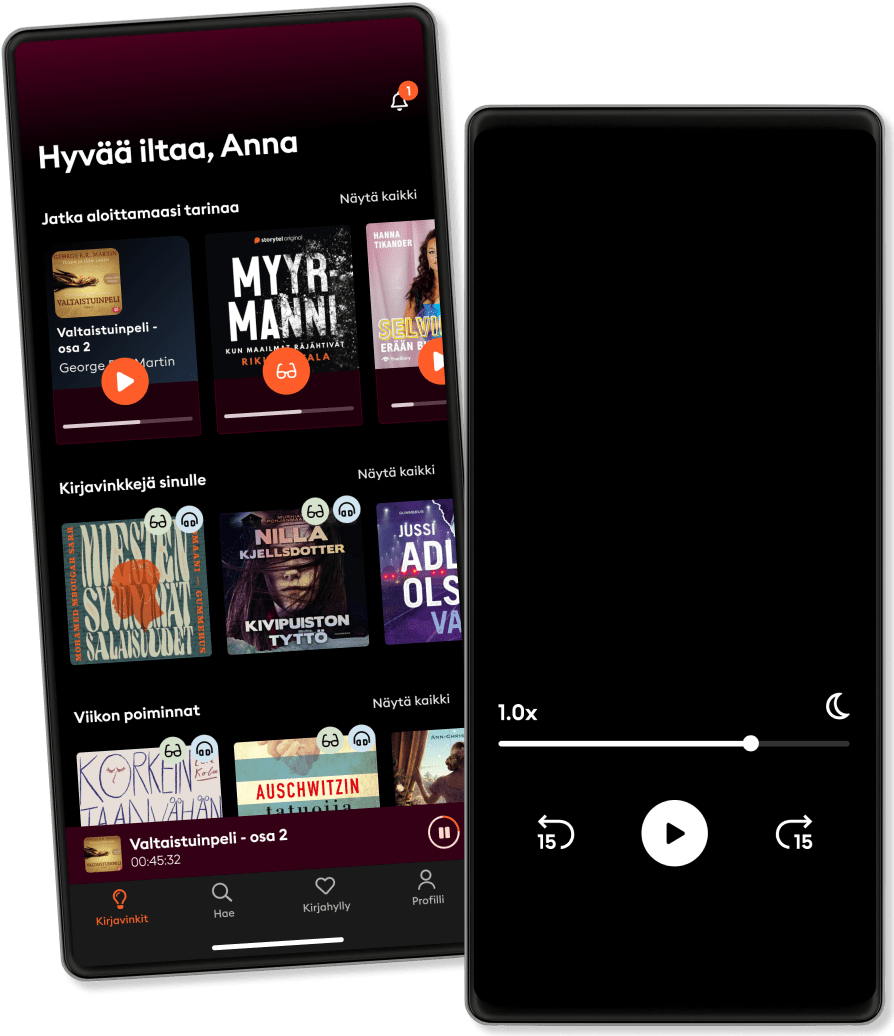Juuri nyt! Storytel Standard -50% pysyvästi
Kuuntele missä ja milloin haluat
- Pohjoismaiden suosituin ääni- ja e-kirjapalvelu
- Uppoudu suureen valikoimaan äänikirjoja, e-kirjoja ja podcasteja
- Storytel Original -sisältöjä yksinoikeudella
- Ei sitoutumisaikaa

De Raey: The Mole in Leiden: Cartesianism in 17th century medical education
- Kirjailija
- Kustantaja
- Kieli
- Englanti
- Format
- Kategoria
Historia
From 1654, De Raey held the chair of philosophy at Leiden University. In 1658 he was instructed to give medical lectures. For four years, Raey has taught theoretical medicine in private classes. Each student had to write a Thesis at the end of the curriculum. A few 10-dozen medical theses must have seen the light in this period. The only copy that has survived for three and a half centuries has recently been found by the author
It concerns 45 statements on the subject of fevers by his student Israel Conrat, which he defended on 5 February 1659 in the large auditorium at Rapenburg.
De Raey postulates an "endocrine" relationship between mind and body. The anima is stirred by thoughts and emotions and sends spirit through the body in response. The spirit is sent selectively to all secretory organs and can cause fever spikes in the event of excessive stimulation. The secreted fluids mix with blood and form fermentation products, stimulating the metabolic processes. With this interpretation of the soul-body relationship, De Raey takes an important step in the direction of a psychosomatic pattern of thought.
The book is not only meant for philosophers and medical historians, but for all who want to take a look at the extensive menu of Cartesian cuisine. The 17th-century philosopher René Descartes turned established science upside down by doubting all certainties. His critical mind rejected statements that could not be proven by the Ratio. The Ratio was the metaphor for the roots, the physics for the trunk and the medicine for the branches and leaves of the Cartesian tree.
This premise was directly opposed to the established aristotelian theory in which observation formed the basis of knowledge.
De Raey, who once called Descartes his best student, synthesized a hybrid model of the old Aristotelian and the new Cartesian concept.
From 1658 to 1662 he gave private lessons in medicine at Leiden University and tried to use his model as a basis for explaining human physiology.
Until now, nothing was known about the content of these lectures. The author recently found a dispute. It is a new dish on the Cartesian menu.
© 2020 Bibliotheca medico-historica Leidensis (E-kirja): 9789082917642
Julkaisupäivä
E-kirja: 10. helmikuuta 2020
Avainsanat
Saattaisit pitää myös näistä
- Road Seven Keith Rosson
- Ten Low Stark Holborn
- Beyond: The Astonishing Story of the First Human to Leave Our Planet and Journey into Space Stephen Walker
- One Hundred Miracles Zuzana Ruzickova
- Schoenberg: Why He Matters Harvey Sachs
- Unified Growth Theory Oded Galor
- Lord Jim at Home Dinah Brooke
- Learn Dutch Bundle - Easy Introduction for Beginners (Level 1) Innovative Language Learning
- Moonseed Stephen Baxter
- The Best of Cordwainer Smith Cordwainer Smith
- Sara Sieppi: Oliks sulla vielä jotain? Wilma Ruohisto
4.5
- Rakel Satu Rämö
4.1
- Kotiapulainen valvoo Freida McFadden
3.9
- Mija Wadö tutkii 3: Häpäisty Nilla Kjellsdotter
3.6
- Selli Jussi Adler-Olsen
4.3
- Cannonball MC: 20 vuotta jengissä Sami Lotila
3.2
- Mija Wadö tutkii 1: Lyöty Nilla Kjellsdotter
3.4
- Lehmä synnyttää yöllä Pajtim Statovci
4
- Mija Wadö tutkii 2: Merkitty Nilla Kjellsdotter
3.6
- Talventähti Anna Jansson
3.6
- Heikki Silvennoinen: Nousut ja laskut Tommi Saarela
4.2
- Rautaliekki: Empyreum 2 Rebecca Yarros
4.5
- Kotiapulainen Freida McFadden
4.1
- Unissakävelijä Lars Kepler
4
- Kotiapulaisen salaisuus Freida McFadden
4
Valitse tilausmalli
Yli miljoona tarinaa
Suosituksia juuri sinulle
Uusia Storytel Originals + eksklusiivisia sisältöjä kuukausittain
Turvallinen Kids Mode
Ei sitoutumisaikaa
Standard
Sinulle joka kuuntelet säännöllisesti.
1 käyttäjätili
50 tuntia/kuukausi
Ei sitoutumisaikaa
Premium
Sinulle joka kuuntelet ja luet usein.
1 käyttäjätili
100 tuntia/kuukausi
Ei sitoutumisaikaa
Unlimited
Sinulle joka haluat rajattomasti tarinoita.
1 käyttäjätili
Kuuntele ja lue rajattomasti
Ei sitoutumisaikaa
Family
Kun haluat jakaa tarinoita perheen kanssa.
2-6 tiliä
100 tuntia/kk jokaiselle käyttäjälle
Ei sitoutumisaikaa
2 käyttäjätiliä
26.99 € /kuukausiFlex
Sinulle joka kuuntelet vähemmän.
1 käyttäjätili
20 tuntia/kuukausi
Säästä käyttämättömät tunnit, max 20h
Ei sitoutumisaikaa
Suomi
Suomi